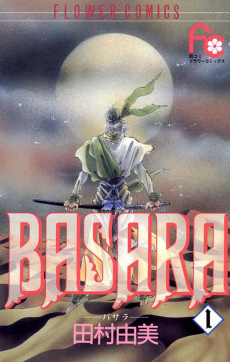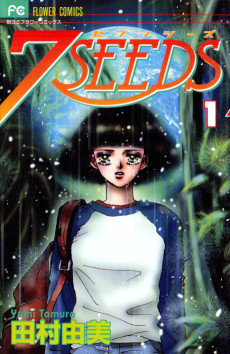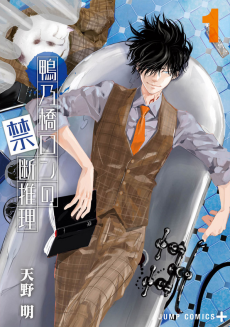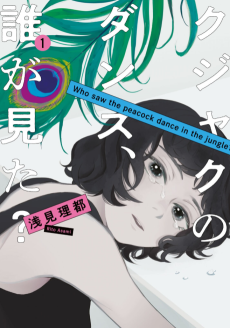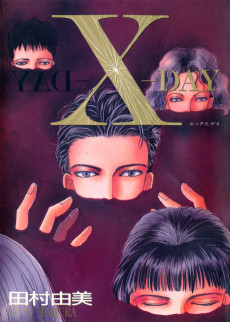MYSTERY TO IUNAKARE
STATUS
RELEASING
VOLUMES
Not Available
RELEASE
Invalid Date
CHAPTERS
Not Available
DESCRIPTION
Totonou is a young man who stands out—partly for his bushy hair, partly for his finely honed abilities of observation and deduction. When Totonou is accused of murder, he puts his skills to work delving into the lives of the cops investigating him and uses his insights to find the real murderer. After clearing his name, all Totonou wants to do is return to his laidback, mundane life, but he can’t help but be drawn into one mystery after another. In his own blunt but gentle way, Totonou is just trying to make sense of a chaotic world.
(Source: Seven Seas Entertainment)
CAST
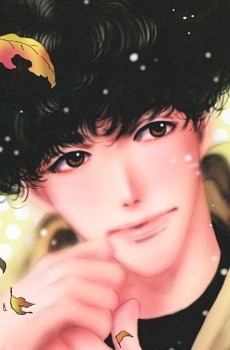
Totonou Kunou
CHAPTERS
REVIEWS

shojolover420
99/100Don't Call It Mystery Recommendation/ReviewContinue on AniListTaken from part of my review/recommendation in this video I wanted there to be a review for the series here on anilist.
Don't Call It Mystery follows an average college student and lover-of-curry, Kunou Totonou. At the beginning of the story, police bring him in for questioning on suspicion of murdering his classmate. As he is under interrogation, it becomes clear that Totonou is not the usual murder suspect. He quickly takes in his surroundings, analyzes everyone in the room and cuts them to their core with his questions and remarks. With just a few minor details like Ikemoto’s wrinkled shirt and dirty shoes that differ from the day before, he’s able to deduce that the officer is having problems with his wife and gives advice on how to see things from his exhausted wife’s perspective. Totonou understands what is ailing each of them in their daily lives and switches the situation around so that the ones being put under a microscope are the police, rather than himself. And it’s his complex understanding of others, as well as his brilliant deductive skills, that lead to him unearthing the true culprit within 5 days of the investigation.
Although the series may have mystery and crime elements, I believe it is a very psychological one that focuses on examining both individuals and Japanese society as a whole. Totonou is always showing or telling people what he calls the “personal truths” of others that they need to understand and grow.
A little background on the series: it originally started as a oneshot, but due to its great reception by readers, it became a running series. This is important to how and why the series is written in such a remarkable way. Ms. Tamura explains this in her 2020 interview with Da Vinci magazine. (Credit to tamuramachi on tumblr for the wonderful fan-translation of said interview.)
“Originally, I didn’t start this work with the intention of making it into a mystery, but rather, I was thinking of making it so that Totonou is just there having a conversation while the case is being solved on the side. I wasn’t thinking that he himself would be solving the case. That’s why I titled it with [‘Don’t Say It’ (is a Mystery)], and why the main focus is on his commentary. Everything he says is actually something I’ve always wondered and kept thinking about. Or, they’re unexpected facts that I learned, or something that surprised me. So, the questions and answers within me at the present moment have become Totonou’s words. Normally, it’s not allowed in manga to include the author’s thoughts or opinions as they are. However, since Mystery was a one-shot, I thought I’d experiment a bit.”
- Yumi Tamura, Da Vinci Magazine interview, August 2020
It’s thanks to Don't Call It Mystery starting as a oneshot that Tamura felt free to try something not often done in the manga world, and I think that’s what makes this story so unique.
“I’m the type of person who cannot speak up clearly even when frustrated, so maybe I admire people who don’t keep quiet. People who can think things through and put them into words. Like, ‘I’m not so sure that’s the case’ to ‘I think this is wrong.’”
- Yumi Tamura, Da Vinci Magazine interview, August 2020
I believe Totonou’s outspokenness about his opinions on what he finds wrong or right in society alongside the mysteries are what bring readers in. In a series that is filled to the brim with dialogue, monologuing, and simply having a sitting discussion, it is crucial to have an interesting and likable protagonist–and Tamura has obviously succeeded at that. I believe it is Totonou’s sincerity and eloquence in the way he delivers his thoughts that practically enchant readers…until suddenly 30 pages have passed and you come out of your trace thinking, “wow, how was that almost all dialogue? And how did it go by so fast?"
Totonou doesn’t speak lightly, nor does he exactly try to force his opinions on anyone. He treats everything he says as a topic for discussion, or purely his own musings at the moment–even if those moments aren’t normally the best time to do so, such as when he accidentally started what pretty much became a group therapy session during a bus hijacking.
In Da Vinci magazine, they describe Totonou as a “difficult person,” and that’s likely what he would come across as in real life. Interestingly, he often keeps his face expressionless while dealing with all sorts of heavy topics such as why it’s wrong to kill people, bullying, gender inequality, what it means to love and raise a child, and more. I personally believe this makes him all the more appealing and easier to listen to, rather than if he were a screaming or raging protagonist.
And, as Da Vinci magazine says:
“[...] for each of these topics, he gives his own well-thought-out response, addressing them to the people around him as well as to the readers."
- Da Vinvi Magazine (about Kunou Totonou), August 2020
Don't Call It Mystery is a work that makes people think, and not just about the whodunnit part of usual mysteries. Totonou is someone who questions long-standing traditions and issues in a way that’s easy to understand and rarely steps too far into the territory of patronizing. Tamura has also commented that even if she speaks her thoughts through Totonou, it doesn’t mean she wants people to agree with her way of thinking. Rather, she explains:
“I believe that everyone has their own way of thinking. It’s also natural for people to think, ‘This seems different or wrong.’ So, it makes sense that the way we look at things changes depending on our situation and circumstances. Everyone has their own truth. That’s why human relationships become so complicated…. It would be great if we could talk about that head-on with each other, but I don’t think we’ve learned how to do that very well. It is up to readers to decide how they want to view what I’ve created, so I would be nothing but gratified if they could read my work as they please and enjoy it as reading material. However, there are times when readers tell me that they related to or sympathized with some part of a story, or that it somehow inspired them to think about many things, and that is another outcome that makes me deeply happy and most grateful.”
- Yumi Tamura, Da Vinci Magazine, August 2020
Totonou says it well himself, “there are as many truths as there are people” before going on to say, “but, there is only one reality. The reality of what happened. Everyone has their own interpretation of a situation, but that doesn’t change the very real and experienced source of discussion.
Don't Call It Mystery is more than just a story about a college student mistakenly accused of murder and its search for the true culprit, it is an opening for discussion and examination of society itself. And it achieves this through its interesting and three-dimensional characters–even side characters, which Tamura has always taken care to develop across all of her series in a way that shows they are each the protagonist of their own lives. The story itself is incredibly intriguing, and the fact that most people might read up until this point while likely thinking “you’re telling me a plot like this can hold anyone’s interest?” is just another testament to how good of a storyteller Tamura is to even make a setup like this work so well.
Of course, discussions aren’t the only thing going on in this manga. Totonou gets caught up in some pretty sticky and unusual situations, like the whole murder suspect case and bus hijacking I mentioned before. His lack of ability to read the room and his stubbornness also give some light comedy to the story, as other characters try to figure out how someone could simply ask a hijacker if he could “finish by 3:30” so that he wouldn’t be late for an art exhibition he wanted to see He even begins to explain to the man that there are many places on Earth where killing is still rampant, followed by a remark on how there are people who think killing in their own country is wrong, yet carpet bombing other countries is fine, and that he’d love to hear how they explain the such a thing to their own children. He then tells the man to go find a place like that.
Totonou never shies away from what he wants to say. He faces everything head-on in a very concise way that leaves other characters shocked, intrigued, or both.
But they are nearly always things that need to be said. Even though there's times when Totonou himself asks, "Is it alright if I keep talking?" And even the hijacker is like, "Were you really planning to stop?" At the end of the first chapter, one of the police officers even tells him to never come back again.
People don't always want to be faced with the truth or the consequences of their actions, but..you know...he's always there to remind everybody "you screwed up," or "hey, maybe there's more to life than what's traditionally expected of you." Or "maybe you should question why things are the way they are."
Totonou himself comes off as kind of a mysterious guy to other characters. Some of them even end up coming to him as like a counselor, and he even has to say, "Hey, I'm not here to be your counselor." But, his opinions and outlook on life are so interesting and intriguing to them that they really do want to hear his opinion and what he has to say. They get a whole other perspective on issues and problems in their life that they might not have otherwise. Or, just not have considered. And the fact that he's just some average guy, some college student who just wants to eat curry and doesn't have a job--or even friends, or a girlfriend--makes him all the more approachable and easier to ask these things.
FINAL POINT
Don't Call It Mystery is a compelling series that I would recommend to anyone who’s interested in the Psychological, Mystery, or Drama genres, as well as those interested in well thought-out dialogue, great character writing, and pacing. I will say that if you’re someone who needs a ton of action and battles to stay engaged in a story, or really can’t stand a lot of text, OR you like a lot of romance, this likely isn’t the series for you (try out her other series Basara, though!). However, for those in the second group, I really do hope you give Don't Call It Mystery a chance. It might just change your mind.
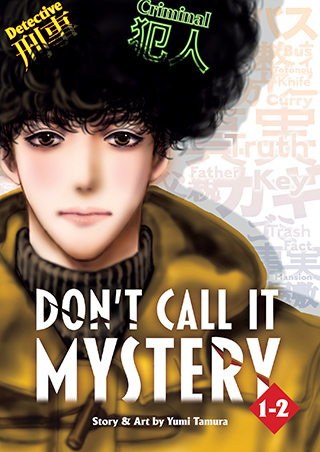
This series is now licensed by Seven Seas and will be releasing on May 30th, 2023 in English!
SIMILAR MANGAS YOU MAY LIKE
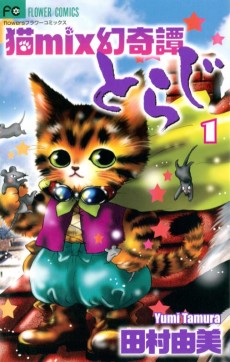 MANGA AdventureNeko mix Genkitan Toraji
MANGA AdventureNeko mix Genkitan Toraji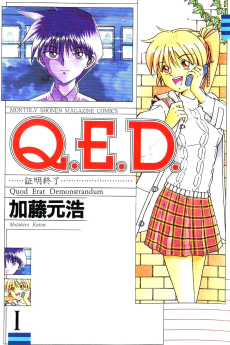 MANGA MysteryQ.E.D.: Shoumei Shuuryou
MANGA MysteryQ.E.D.: Shoumei Shuuryou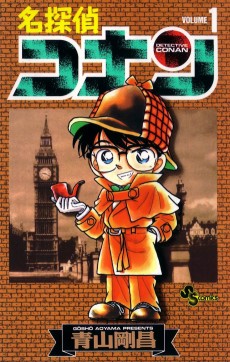 MANGA AdventureMeitantei Conan
MANGA AdventureMeitantei Conan MANGA AdventureHokuhokusei ni Kumo to Ike
MANGA AdventureHokuhokusei ni Kumo to Ike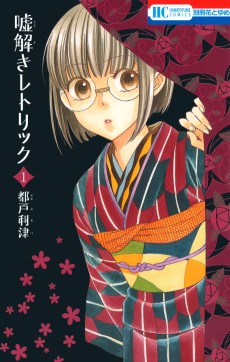 MANGA DramaUsotoki Rhetoric
MANGA DramaUsotoki Rhetoric
SCORE
- (4.1/5)
MORE INFO
Favorited by 265 Users

